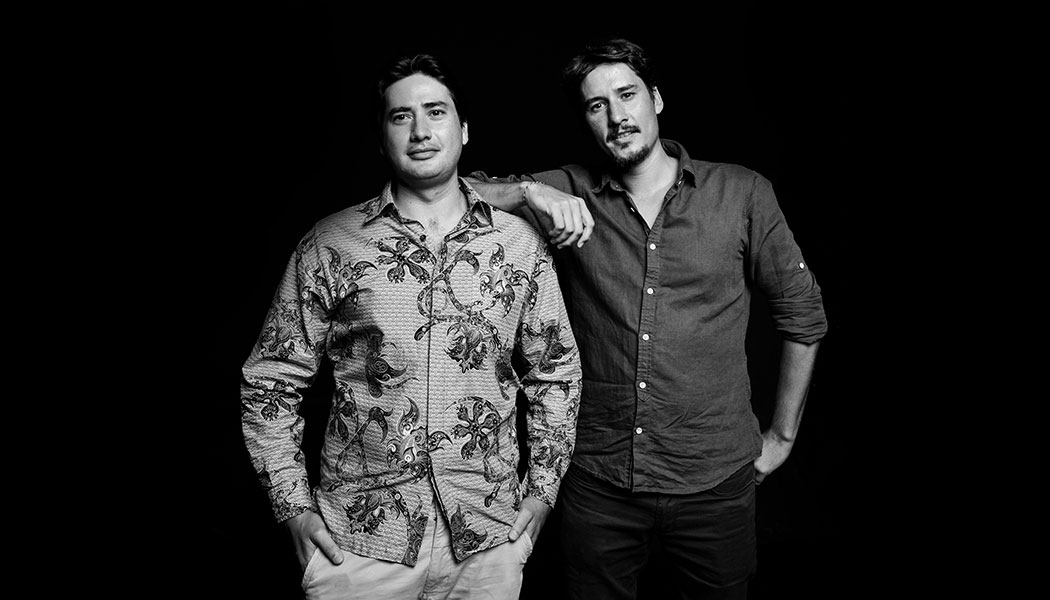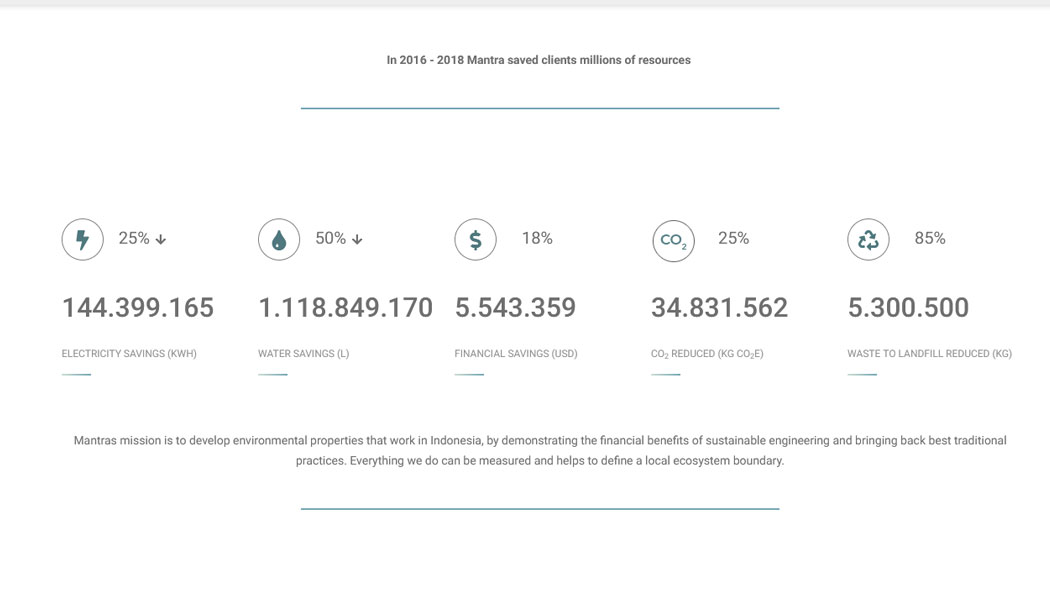As part of our Green Bali issue #62, we tracked down Sean Nino Lotze and Maitri Fischer from Eco Mantra to talk environmental system design. Photo: Oscar Munar.

You don’t have to be a local or long-time resident to see that Bali is changing drastically. Even first-time visitors can’t help notice rampant development taking place all over the island. Unfortunately change and development are inevitable in a popular tourist destination like Bali. However, one homegrown company believes that it doesn’t have to come at continuous cost to the environment.
Entrepreneurs Sean Nino Lotze and Maitri Fischer grew up in Seminyak and Ubud respectively but met in Europe where Sean was studying sustainability economics and Maitri was studying geophysics and astrophysics. They instantly bonded and formed a friendship that would later develop into a shared mission to protect and preserve their childhood home.
Sean says: “We grew up on the island and had the privilege of experiencing Bali in the 1980s and ’90s, a simpler time when the natural beauty and magic of Bali was everywhere. It is something we strive to continue.”
In 2014, the duo founded Mantra, an environmental consulting company that focuses on the tourism industry. The team consists of specialists from Indonesia and abroad who help property owners build more sustainably. Their goals are to demonstrate the financial benefits of eco-efficiency and to give property owners the tools they need to meet eco-friendly goals and international green building standards.
The experts at Mantra consult on everything from energy consumption to environmental system design and sustainable engineering. They provide property owners with audits in energy, water and waste and help implement systems to measure and manage sustainability. Over the years they have helped clients save millions of resources and up to 50 percent on water and energy costs.
Sean says: “Decision makers in business and government lose sight of the larger meaning of their work and the impact they have. It is natural for humans to become immersed in their daily activities and get caught up in their routines. We have been successful because we help leaders find the right environmental solutions on their own so that environmental management becomes their natural inclination.”

Despite being a small company, Mantra boasts an impressive portfolio with clients like Waterbom, the Viceroy and Potato Head Beach Club. They are currently working with Atelier One and Andra Matin, and there are plans to do a project with the late Made Wijaya’s landscape team and the world-famous Frank Gehry and Turenscape.
Sean says: “Business leaders of today are learning that they need to put forward lean, clean and cool new products that are environmentally friendly. You don´t see market leaders hanging their logos on gas guzzling and polluting technologies and experiences anymore. Perception is changing, especially among our youth, tomorrow’s biggest consumers.”
In addition to helping corporate clients lessen their environmental footprint, Mantra also partners with local organisations like Merah Putih Hijau, which helps local communities build and maintain waste management infrastructure. Mantra supports the MPH approach and has enforced waste separation at each of their partner hotels and resorts. They share MPH’s belief that we can reduce the waste that goes to Bali’s landfill by up to 90 percent.
Mantra also works closely with the Bali Water Protection Program to help save and protect Bali’s freshwater. They engage with businesses and communities to provide educational tools and engineering solutions for efficient water management and offer partners the opportunity to adopt a river or well. These rainwater-fed gravity wells and filters act as rapid freshwater replenishment systems in critical areas around Bali.
Another issue Sean believes is crucial right now in Bali is mobility and the planning of common space for transportation. He says, “On-going privatization is boxing up every space that once was vast and open for everyone to enjoy. Now we’re standing in traffic, boxed in between concrete walls, on tiny roads facing massive buses and trucks and breathing toxic exhaust fumes versus riding in the open with vast views and breathing fresh air.
“This is actually an environmental problem and one that we can counteract. For example, there could be a land fund owned by the people that buys land and holds it in the name of the public. We could also build centralized multi-storey parking houses, develop village-scale alternative transportation modes, or enforce weekly bans for motorized vehicles. The public needs to start asking some tough questions.”
Despite being deeply aware of the environmental issues Bali faces, Sean and Maitri are optimistic that citizens and users of resources are slowly becoming aware of their individual impact and that Mantra can be a force for change.
Sean says: “It would help our future generations if we had a platform that promoted environmental literacy. How can we make future green leaders be more confident in their assumptions and help them gain confidence and grow movements that bring change? What kind of tools do they need from us? These are the questions we are really interested in.”